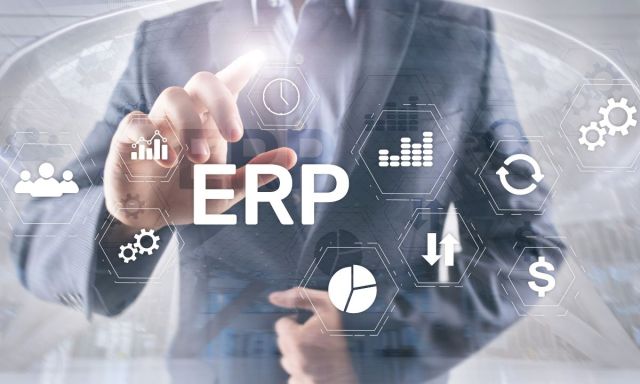Introduction to ERP in Large Business Management
Enterprise Resource Planning (ERP) systems are designed to integrate and manage core business processes within a single platform. For large organizations, where operations span multiple departments and locations, ERP ensures consistency, efficiency, and visibility across the enterprise. This makes ERP not just a helpful tool, but the very backbone of effective business management.
Large businesses often deal with vast amounts of data, from customer orders to financial reports. Without an integrated system, information can become fragmented, leading to inefficiencies and poor decision-making. ERP addresses this by consolidating data into one centralized system, allowing leaders to manage operations holistically.
By aligning people, processes, and technology, ERP systems empower organizations to adapt quickly to market changes. This agility is essential for staying competitive in today’s dynamic environment, reinforcing the idea that ERP is fundamental to business success.
Understanding the Backbone Concept in Business Operations
In business terminology, the “backbone” refers to the central structure that supports and connects all functions. Just like a spine holds the body together, ERP links departments such as finance, HR, supply chain, and sales, ensuring they function in harmony.
For large businesses, this backbone is critical. Without it, departments may work in silos, creating duplication of effort and slowing down processes. ERP prevents this by creating a unified system where information flows seamlessly across the organization.
By serving as the backbone, ERP enhances both operational stability and strategic growth. It allows companies to manage complexity while maintaining flexibility, which is essential for long-term sustainability.
How ERP Unifies Core Business Functions?

One of the primary strengths of ERP is its ability to unify core business functions into a single system. Finance, HR, operations, procurement, and sales are all connected, ensuring that data flows without barriers. This unification eliminates inefficiencies caused by using multiple disconnected platforms.
For example, when the sales team closes a deal, ERP can automatically update inventory, generate invoices, and reflect the transaction in financial records. This interconnectedness reduces manual work and ensures accuracy across all departments.
Unification also promotes collaboration. When teams have access to the same data, they can work together more effectively, solve problems faster, and achieve business goals with greater efficiency.
The Role of ERP in Enhancing Enterprise Efficiency
Efficiency is a cornerstone of large business success, and ERP plays a direct role in achieving it. By automating routine tasks, ERP reduces manual intervention and allows employees to focus on more strategic responsibilities.
Processes such as payroll, order processing, and procurement are streamlined, leading to faster turnaround times and fewer errors. This efficiency not only saves costs but also improves customer satisfaction by delivering quicker and more accurate services.
In addition, ERP provides real-time insights that help businesses identify bottlenecks and optimize workflows. By continuously refining processes, enterprises can remain agile and efficient, even as they grow in size and complexity.
Why ERP Improves Decision-Making in Large Organizations?
Decision-making in large organizations relies on accurate, timely information. ERP systems provide this by consolidating data from multiple functions and presenting it in easy-to-understand dashboards and reports.
Executives can monitor performance indicators, track budgets, and analyze customer trends in real time. This visibility allows leaders to make informed choices that align with long-term strategies and short-term objectives.
Moreover, ERP reduces the risk of decisions based on outdated or inconsistent data. By offering a single source of truth, ERP ensures that all stakeholders work with the same information, leading to more reliable outcomes.
ERP and Its Impact on Business Scalability
Scalability is critical for large enterprises that want to expand operations, enter new markets, or diversify their offerings. ERP systems are designed to grow alongside the business, supporting expansion without disrupting workflows.
Whether a company opens new branches, introduces new products, or acquires other businesses, ERP ensures that processes remain consistent and manageable. Its modular design allows enterprises to add features and capabilities as needed.
This scalability gives businesses the confidence to pursue growth opportunities without fear of overwhelming their existing systems. In essence, ERP provides the stability and flexibility required for sustainable expansion.
ERP as a Tool for Financial Control and Transparency
Financial control is one of the most important aspects of managing a large business. ERP systems provide comprehensive tools for budgeting, forecasting, and financial reporting, all within a single platform.
By integrating financial data with other business functions, ERP ensures that leaders have a clear view of revenues, expenses, and profitability. This transparency reduces the risk of errors and fraud while enabling compliance with financial regulations.
With real-time reporting, businesses can monitor financial performance continuously rather than waiting for end-of-month reports. This allows for proactive management and more strategic allocation of resources.
ERP’s Role in Workforce and Human Capital Management
Employees are a company’s most valuable resource, and ERP systems help manage them effectively. From recruitment to payroll, ERP centralizes HR processes, making it easier to track performance and ensure compliance with labor laws.
For large enterprises with thousands of employees, ERP streamlines workforce planning. Managers can monitor staffing needs, manage schedules, and track employee development, ensuring the right people are in the right roles.
Additionally, ERP fosters employee satisfaction by simplifying processes such as leave requests, benefits management, and performance reviews. This contributes to higher productivity and lower turnover.
ERP Integration in Supply Chain and Logistics

Supply chains are complex networks that require constant coordination. ERP integration enhances visibility across procurement, manufacturing, distribution, and sales, ensuring that all parts of the chain work seamlessly together.
Real-time inventory tracking helps prevent shortages and overstocking, while automated workflows improve order fulfillment. This not only reduces costs but also strengthens customer trust by ensuring timely delivery.
ERP also enables businesses to adapt quickly to disruptions, such as supplier delays or shifts in demand. With centralized data and predictive tools, enterprises can make agile adjustments to keep the supply chain resilient.
ERP and Regulatory Compliance for Large Businesses
Large enterprises must comply with numerous regulations, often across multiple jurisdictions. ERP systems simplify compliance by automating record-keeping and providing audit-ready reports. By integrating compliance into daily operations, ERP reduces the burden on employees and minimizes the risk of penalties. Features such as automated tax calculations and data security controls ensure businesses meet legal standards.
Transparency is another benefit. With ERP, companies can easily demonstrate compliance to regulators and stakeholders, enhancing trust and credibility.
8 Reasons Why ERP is Considered the Backbone of Large Business Management
1. Streamlines Operations Across Departments
ERP ensures that processes across different departments are consistent and aligned. This reduces delays, prevents duplication, and fosters efficiency. By automating workflows, enterprises can speed up operations without sacrificing quality. This is especially important for large businesses with complex structures.
Ultimately, streamlined operations help businesses deliver better products and services faster, keeping them competitive in the market.
2. Improves Data Accuracy and Transparency
Data integrity is essential for large enterprises. ERP systems provide a centralized platform that eliminates duplicate records and errors. Accurate data allows leaders to make informed decisions and provides employees with reliable information to do their jobs effectively. Transparency in data also builds accountability, ensuring that everyone in the organization works from the same source of truth.
3. Enhances Cross-Department Collaboration
ERP encourages collaboration by giving all departments access to the same data. Teams can coordinate efforts more easily, reducing friction and miscommunication. Collaboration tools within ERP, such as shared dashboards and reports, enable better teamwork across locations. This alignment fosters innovation and ensures that everyone is working toward common organizational goals.
4. Reduces Operational Costs
By improving efficiency and eliminating redundancies, ERP helps cut unnecessary expenses. Automation reduces the need for manual labor and minimizes errors that lead to financial losses. Cost savings are especially impactful for large businesses, where even small inefficiencies can accumulate into significant costs. ERP ensures resources are allocated wisely, maximizing return on investment.
5. Strengthens Strategic Planning
ERP provides the insights needed for effective strategic planning. With real-time data, leaders can forecast trends, identify opportunities, and prepare for challenges. This foresight enables businesses to align resources with long-term goals. By strengthening strategic planning, ERP ensures companies remain proactive rather than reactive in a competitive environment.
6. Supports Global Expansion
For businesses expanding internationally, ERP provides standardized processes while accommodating local variations. This ensures consistency across regions. Features like multi-currency and multi-language support make global operations easier to manage. As a result, enterprises can scale confidently into new markets with minimal disruption.
7. Drives Customer Satisfaction
Customer expectations are higher than ever. ERP helps businesses meet these demands by streamlining order processing and providing real-time visibility into customer data. Faster, more accurate service improves customer trust and loyalty. By focusing on customer satisfaction, ERP strengthens the long-term success of large enterprises.
8. Ensures Long-Term Business Sustainability
Sustainability is about more than the environment—it’s about building systems that last. ERP supports sustainability by promoting efficiency, accountability, and continuous improvement. Enterprises that invest in ERP are better equipped to adapt to market changes and withstand disruptions. This makes ERP not just a tool for today, but a foundation for future success.
The Role of ERP in Driving Digital Transformation
Digital transformation is reshaping industries, and ERP is at the heart of it. By integrating modern technologies such as AI, IoT, and analytics, ERP enables businesses to innovate and adapt. ERP provides the digital infrastructure that allows enterprises to automate processes, analyze data in real time, and deliver smarter services.
For large businesses, ERP-driven digital transformation ensures competitiveness in a world where technology is constantly evolving.
Common Challenges in Implementing ERP for Large Businesses
Despite its benefits, ERP implementation comes with challenges. Resistance to change is common, as employees may be hesitant to adopt new systems. Strong leadership and training are essential to overcome this.
Another challenge is the complexity of integrating ERP with existing systems. Large enterprises often use multiple legacy tools, which can complicate the process. Careful planning and phased implementation are key solutions. Budget constraints and time requirements can also pose difficulties. Successful ERP projects require realistic timelines and investment, but the long-term benefits outweigh the initial challenges.
Future of ERP in Large Business Management
The future of ERP lies in greater automation, intelligence, and flexibility. AI and machine learning are being integrated to provide predictive insights and smarter workflows.
Cloud-based ERP systems are also on the rise, offering scalability, cost savings, and accessibility for global teams. As businesses continue to digitize, ERP will evolve into a more adaptive platform, ensuring it remains the backbone of large business management well into the future.







